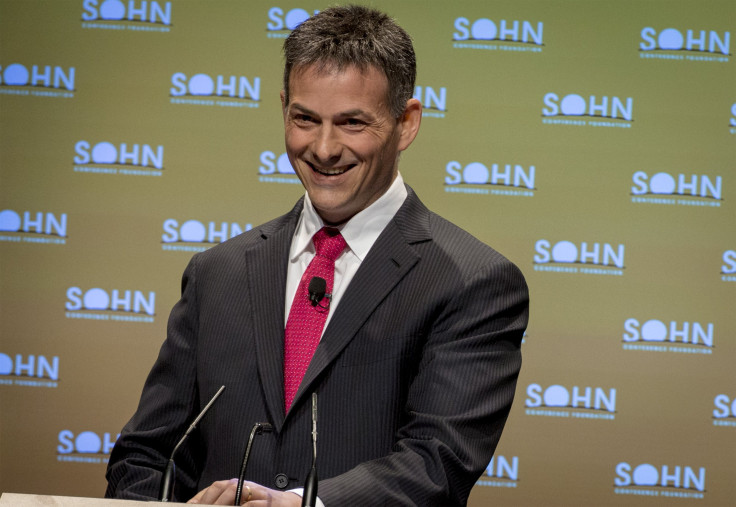Climate Activists Say Sohn Conference Hedge Fund Managers Fund Cancer-Causing Fossil Fuels

A conference on curing childhood cancer hardly seems like the kind of event that would draw protests. But environmental activists are planning to demonstrate Wednesday in New York at the annual Sohn Conference Foundation meeting: They say that many of the Wall Street moguls in attendance got rich at least in part through investments in fossil fuel companies responsible for carcinogenic air pollution.
“We’ve acknowledged in other contexts that some of the charitable contributions from these hedge fund guys go to good stuff," Michael Kink, the executive director for the Strong Economy for All Coalition and a lead activist with the group Hedge Clippers, told International Business Times. “But when you have a direct tie from hedge fund investments to fossil fuels and cancer, that’s something that we have to take a deep breath and talk about.”
Activists from Hedge Clippers, Greenpeace USA and 350.org are planning to protest fossil fuel hedge fund investment and climate change denial groups bankrolled by billionaire hedge fund managers. They will be spotlighting what they say is the hypocrisy of finance industry titans expressing concern about cancer while investing in fossil fuels. In recent years, the World Health Organization has declared that outdoor air pollution causes lung cancer and increases the risk for bladder cancer. Diesel engine exhausts, a type of fossil fuel, are among the components of air pollution that cause cancer.
Duquesne Capital’s Stanley Druckenmiller, Greenlight Capital’s David Einhorn and Elliott Management’s Paul Singer will be speakers at the Sohn Foundation’s conferences in New York and Tel Aviv. All three men's hedge funds have invested in the fossil fuel industry.
Druckenmiller, who runs a firm in Pittsburgh, has a long career with oil and gas. Through his family office, Duquesne Capital, he invests in energy companies EOG Resources and Pioneer Natural Resources — with shares valued as much as $20 million. Druckenmiller supported the Keystone XL pipeline. He is also a trustee for the Environmental Defense Fund, an environmental nonprofit that promotes natural gas as an alternative to traditional fossil fuels.
Einhorn’s firm has nearly $6 billion — 6 percent of its total holdings — invested in the energy sector. That includes as much as $230 million invested in Consul Energy, the 11th largest coal producer in the U.S. and a natural gas exploration company. Although Consul lost 66 percent of its value between early 2015 and November, Einhorn refused to let go of the assets because he expected it to bounce back.
Singer’s firm has holdings in fossil fuel firms Hess Corporation, Centerpoint Energy and Noble Energy, according to a March report from the activists' groups, which detailed several hedge fund managers’ connections to the industry. Singer is known for his involvement with conservative causes and has given as much as $200,000 to groups like the Copenhagen Consensus Center, whose president Bjorn Lomborg — who does not deny man-caused climate change but describes himself as a climate skeptic — called last year's historic Paris climate accord too expensive and has been criticized for downplaying the effects of climate change. Lomborg says quickly cutting carbon dioxide through taxes or other means — an action the majority of climate scientists view as an immediate imperative — will slow economic growth and instead advocates for making clean energy more economically viable through investment in the industry.
Singer is also the chairman of the Manhattan institute, a conservative think tank with ties to major petroleum companies. The think tank reportedly received $635,000 in donations from Exxon Mobil between 1998 and 2012 and has questioned climate change science.
Singer’s Elliott Management and Einhorn’s Greenlight Capital refused comment on this story. Duquesne Capital did not return calls for comment.
“It’s not just that they’re making money off of this, but they’re actively engaged in a set of political activities that are slowing down the things we need to do to address climate change. They’re critically important,” Charlie Cray, a research specialist for Greenpeace, told IBT. “They’ve been successful in delaying action by creating the perception that there is even a debate around whether climate change is real and about whether it is happening.”
This article has been updated to clarify and use more specific language on statements related to the Copenhagen Consensus Center.
© Copyright IBTimes 2024. All rights reserved.






















